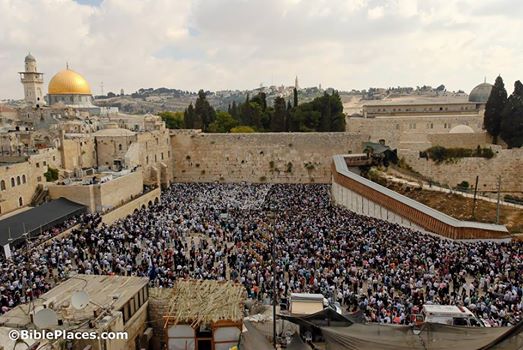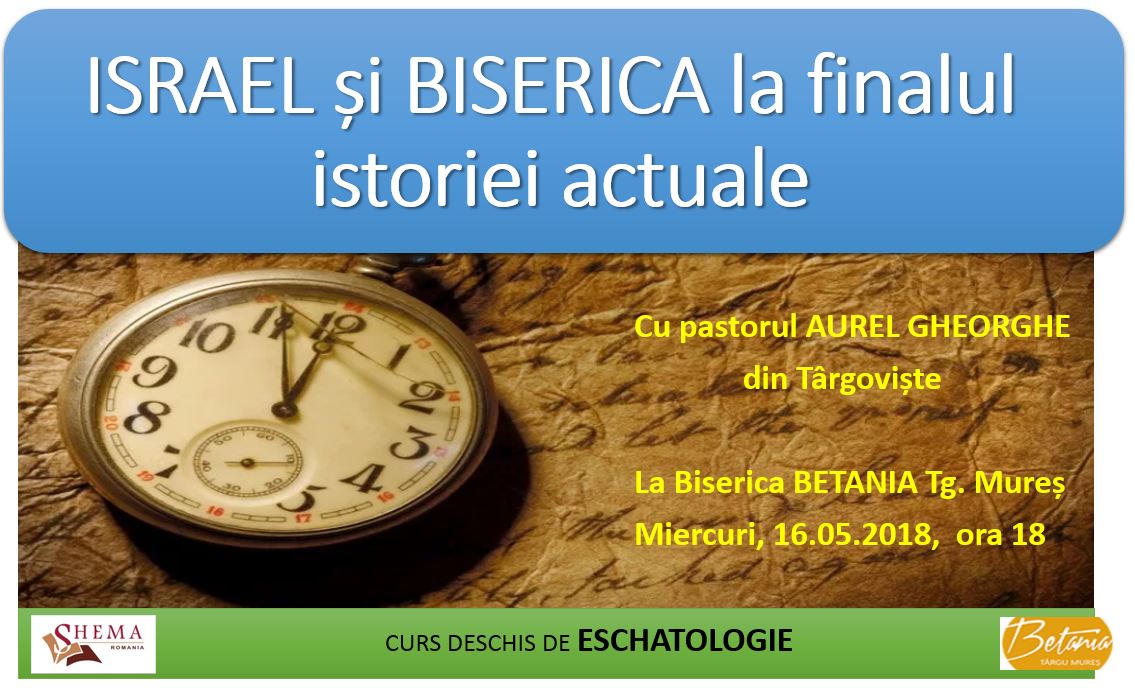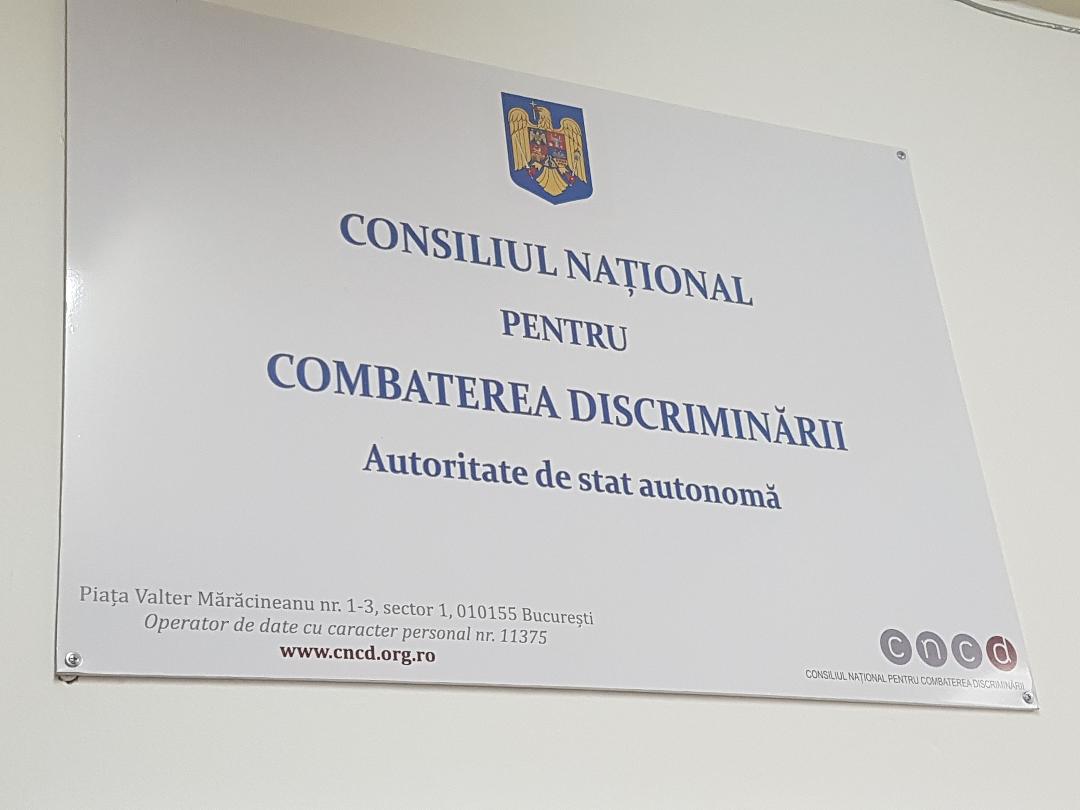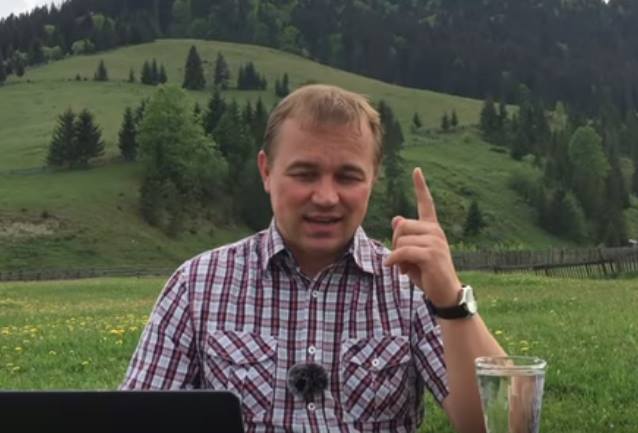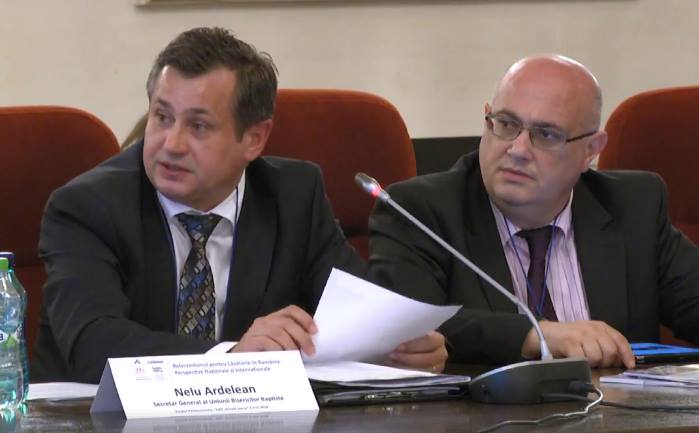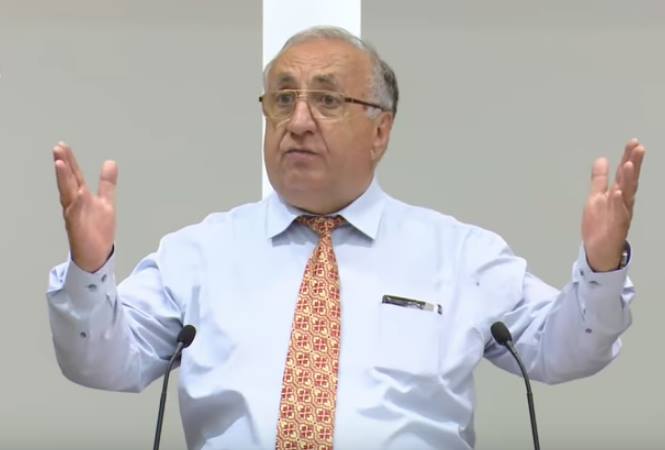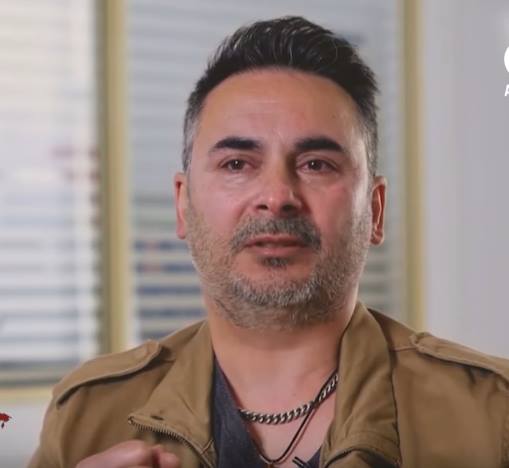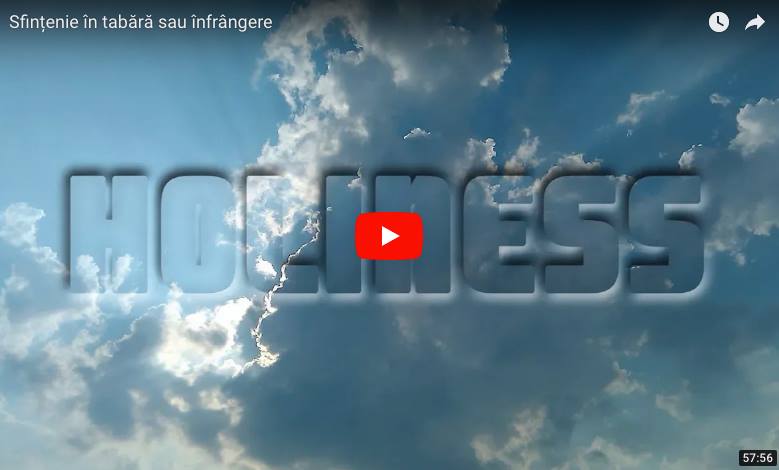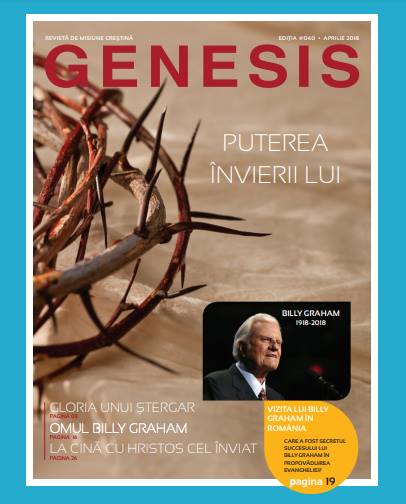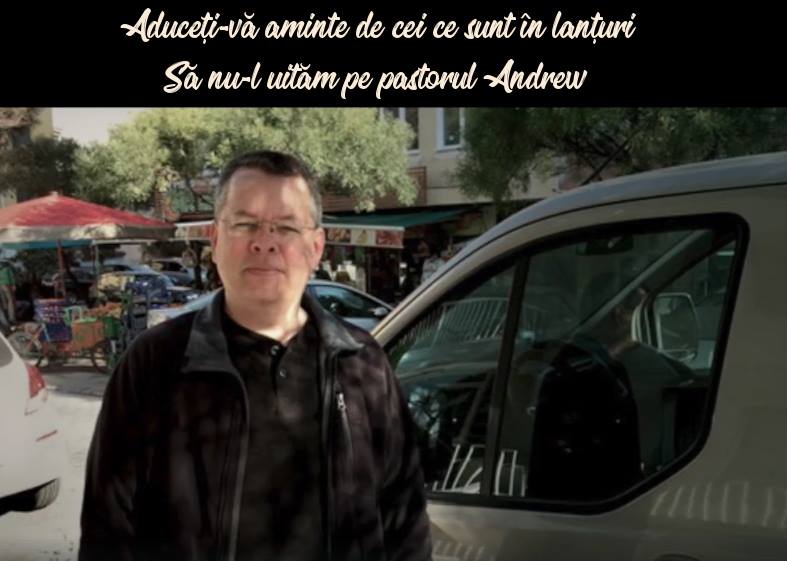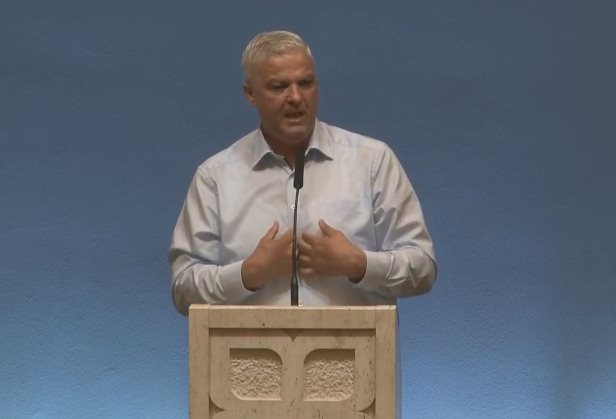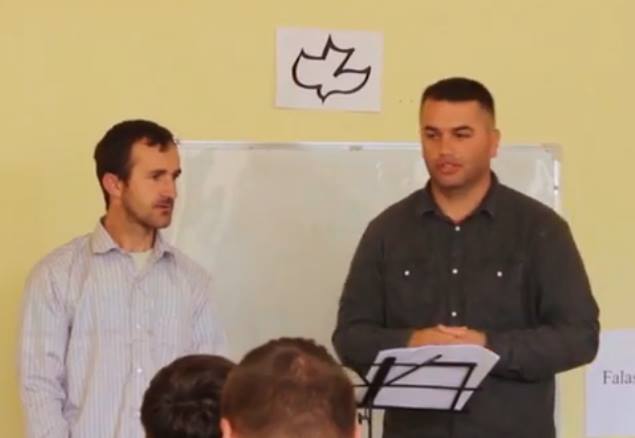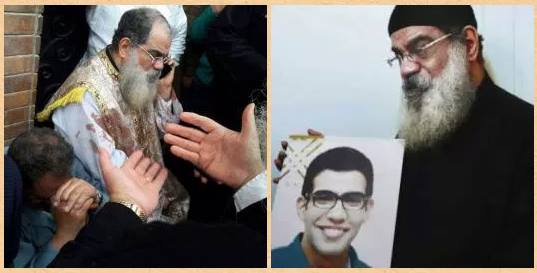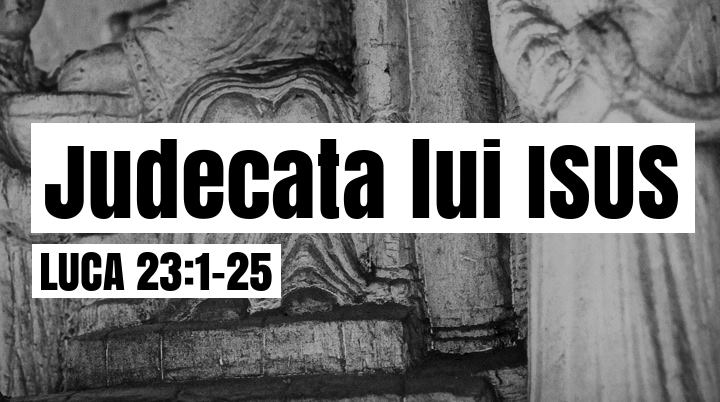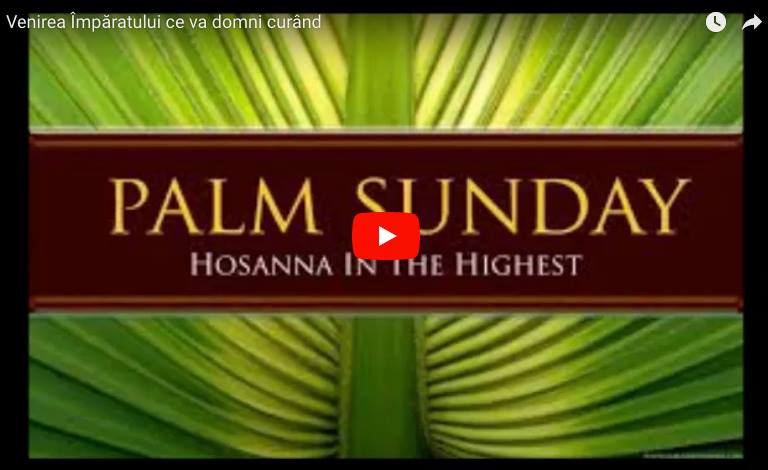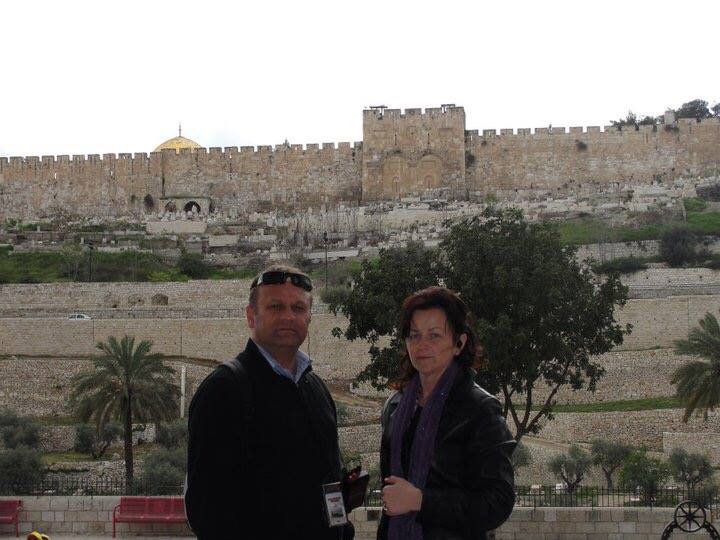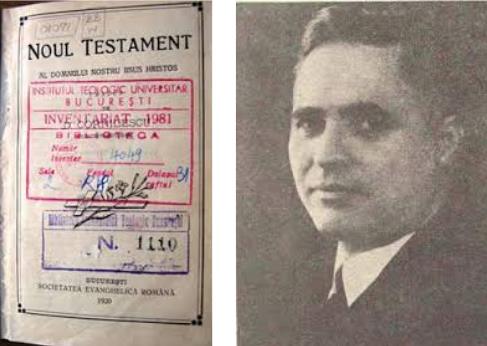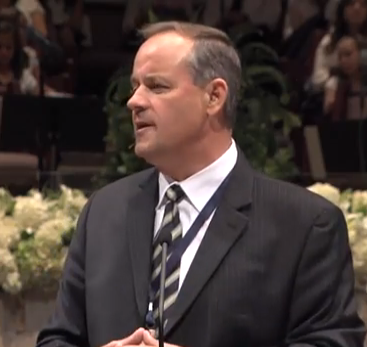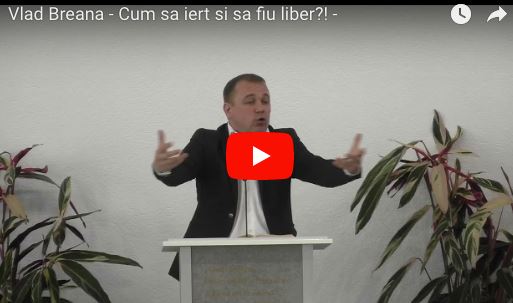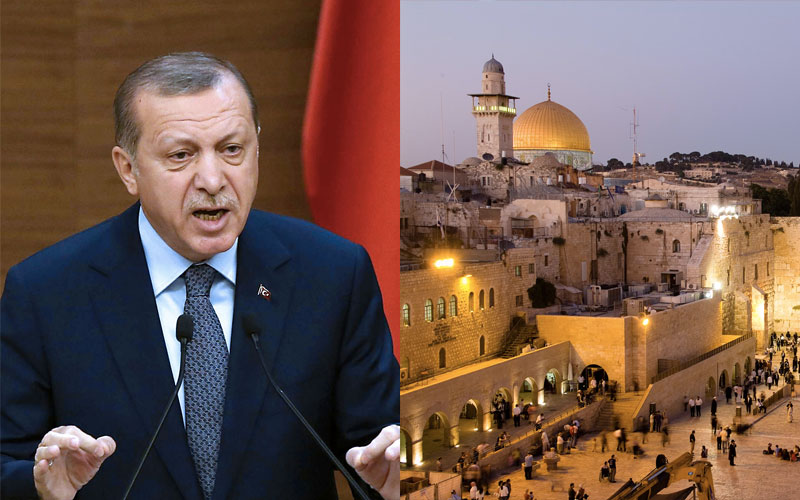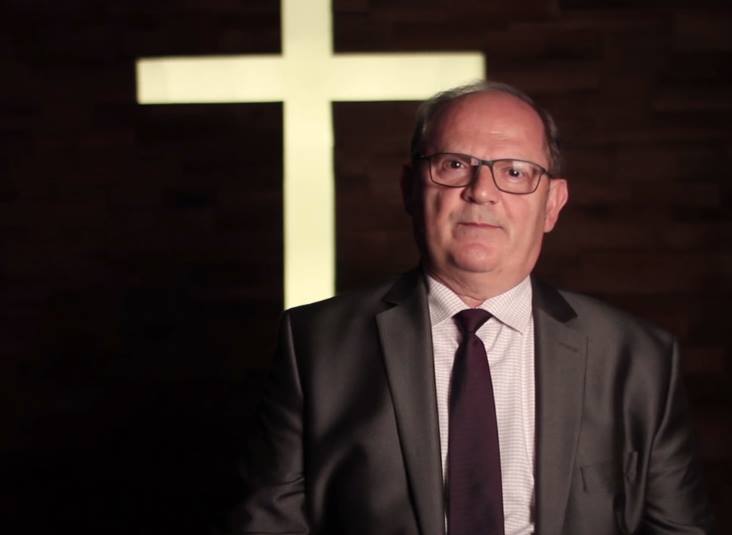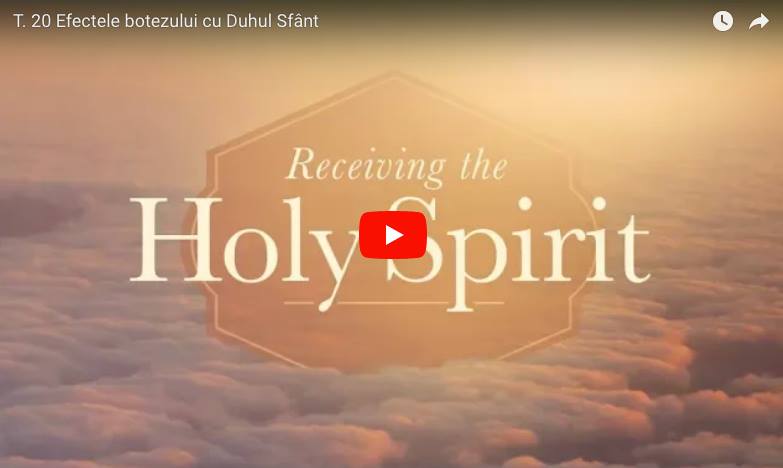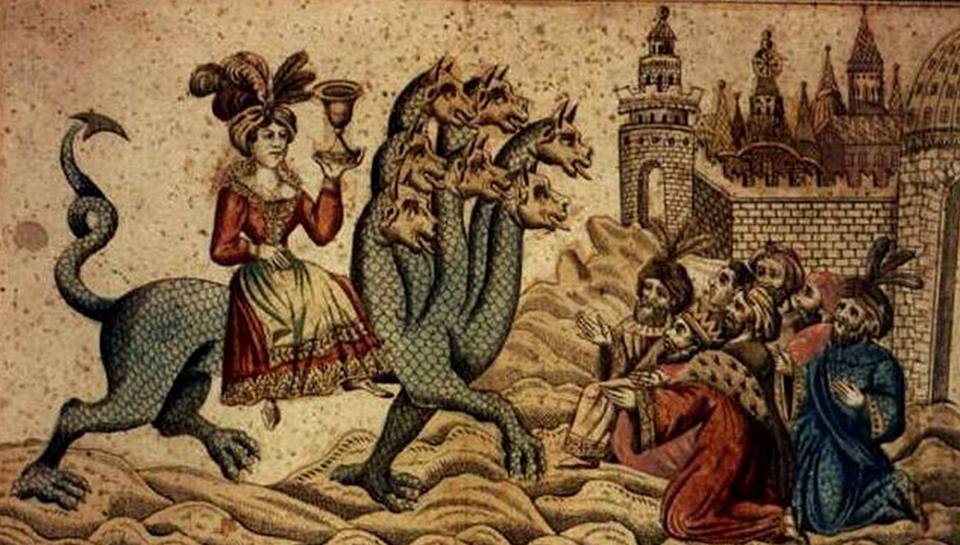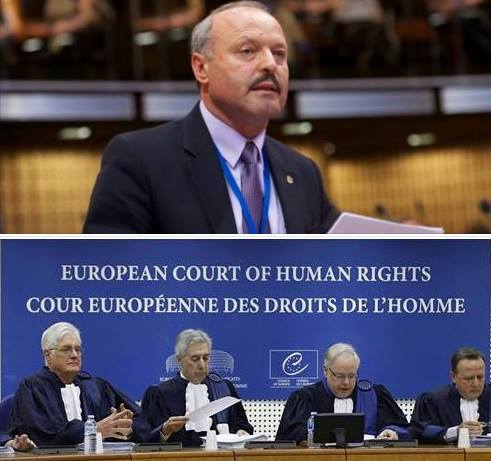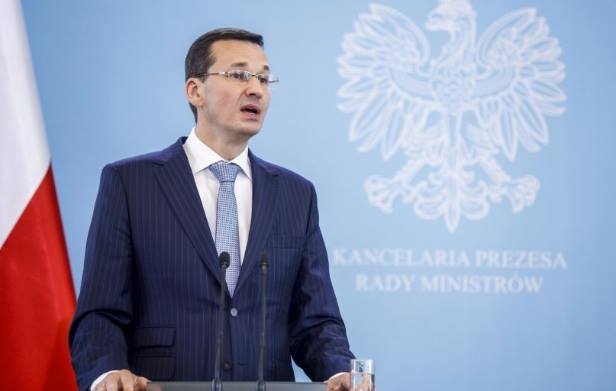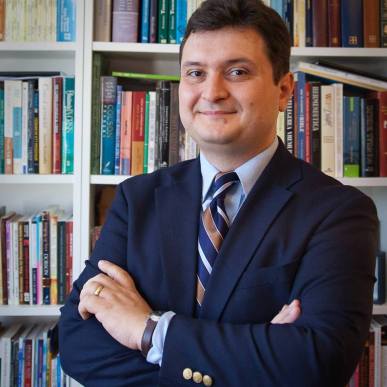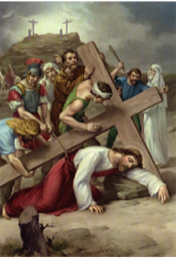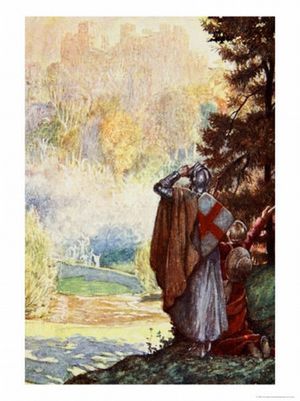A study by J. Hampton Keathley, III at Bible.org See part 1 here – An introduction to the Ascension of Jesus looking at Isaiah 6
The Record of the Ascension:
Its Confirmation and Significance

Prophet – Photo via vk.com
Prophets Anticipated the Ascension
It is important to realize the ascension of Christ has always been a part of the overall plan of God. The idea of the ascension was not some last minute idea thought up by hapless and hopeless disciples.
Isaiah 52:13 Behold, My servant will prosper, He will be high and lifted up, and greatly exalted.
Belief in the ascension and its accomplishments has it source in the expectations and promises of Old Testament prophecy.
Psalm 16:8-11 I have set the LORD continually before me; Because He is at my right hand, I will not be shaken. 9 Therefore my heart is glad, and my glory rejoices; My flesh also will dwell securely. 10 For Thou wilt not abandon my soul to Sheol; Neither wilt Thou allow Thy Holy One to undergo decay. 11 Thou wilt make known to me the path of life; In Thy presence is fulness of joy; In Thy right hand there are pleasures forever. (emphasis mine)
This prophecy traces Christ from the cross through resurrection back into His glory at God’s right hand through the ascension (cf. Acts 2:24-36).
Psalm 110:1-5 A Psalm of David. The LORD says to my Lord: “Sit at My right hand, Until I make Thine enemies a footstool for Thy feet.” . . .. 5 The Lord is at Thy right hand; He will shatter kings in the day of His wrath.
Also compare:
Matthew 22:41-44 Now while the Pharisees were gathered together, Jesus asked them a question, 42saying, “What do you think about the Christ, whose son is He?” They said to Him, “The son of David.” 43 He said to them, “Then how does David in the Spirit call Him ‘Lord,’ saying, 44 ‘The Lord said to my Lord, “Sit at My right hand, Until I put Thine enemies beneath Thy feet”’?
Christ used this Old Testament passage which anticipated the ascension of David’s son to God’s right hand to demonstrate just who Messiah was and what this should mean to mankind. Messiah would be David’s son but also David’s Lord–one who shared God’s throne as God Himself. The ascension is alluded to in the words “at my right hand.” This shows us an understanding of what the ascension means and teaches us about Jesus Christ is vital for right thinking and response to the person of Christ. (Cf. Psalm 68:18; Eph. 4:8ff; Isa 52:13).
The Lord’s ascension was anticipated in the Old Testament and viewed as essential to a proper understanding of just who Messiah is and of His ministry to men. (Photo Jesus ascension.jpg)

Christ Anticipated the Ascension
The ascension was no surprise to the Lord. From the very beginning of His ministry, the Lord was not only aware that He had come to die for our sin, but anticipated both the resurrection and the ascension. Both were foretold in the Old Testament and Christ knew that like His death, the resurrection and ascension were essential for fulfilling God’s purposes and solving man’s dilemma. There must be both the DESCENT from heaven and theASCENT back into heaven.
There are some fifteen or more passages where the Lord speaks of the ascension or alludes to it in one way or another. That is not without significance. In each of the passages the Lord used the ascension much like the fact of the resurrection. He used it to authenticate His person and to give reasons for what He could and would do for man, and why the person and work of Christ demands a verdict–the verdict of faith and commitment.
The ascension is a vital link in the entire chain of events, all of which are essential. It is the link between His past finished work and His present and future work. It demonstrates Jesus Christ to be the final solution for man’s need of prophet, priest, and king (Cf. John 3:13; John 6:62; John 13:1; John 14:1-2; Luke 20:41-44).
New Testament Believers Witnessed the Ascension
The Time of the Ascension
There are some who contend that Christ ascended into heaven prior to the event recorded in Acts 1. A number of expositors teach that Christ ascended to heaven on the day of His resurrection based on the implications of John 20:17 and Hebrews 9:6-20. Let me suggest several reasons why this is unlikely:
(1) In Hebrews 9:11-12 the statement, “through His own blood” (or in the KJV, “with His blood”) has been taken to mean Christ took His actual blood into heaven. They say in John 20:17, Christ was telling Mary not to touch Him because this had not yet been done. But the Greek text here uses a construction which means “through the agency of” or “by means of.” It simply means that Christ was able to enter heaven once and for all by means of (or through) His death on the cross.
(2) The Lord did not actually say in John 20:17 He would ascend immediately, or at a time prior to the record in Luke 24 and Acts 1. “I ascend” is a prediction and illustrates what grammarians call a “futuristic use of the present tense.” This is a well established use in the New Testament (cf. A.T. Robertson, A Grammar Of The Greek New Testament In The Light of Historical Research, Broadman Press, p. 880).
(3) The only biblical record we have of His ascension is the one recorded 40 days after the resurrection (Acts 1:9-11; Luke 24:50-53). Many able scholars have concluded that it is improbable that Christ ascended in a formal way to heaven until the event of Acts 1.
But that He did ascend and that we have the record is enormously instructive.
This record is a confirmation of the fact of the ascension by those who had access to this information and who very carefully examined the facts (Luke 1:3) And the record of the ascension is such that it gives us important information about its nature and meaning.
The Nature of the Ascension
For the purposes of our study, we are going to focus our attention on the account in Acts 1:6-11.
Acts 1:6-11 And so when they had come together, they were asking Him, saying, “Lord, is it at this time You are restoring the kingdom to Israel?” 7 He said to them, “It is not for you to know times or epochs which the Father has fixed by His own authority; 8 but you shall receive power when the Holy Spirit has come upon you; and you shall be My witnesses both in Jerusalem, and in all Judea and Samaria, and even to the remotest part of the earth. “ 9 And after He had said these things, He was lifted up while they were looking on, and a cloud received Him out of their sight. 10 And as they were gazing intently into the sky while He was departing, behold, two men in white clothing stood beside them; 11 and they also said, “Men of Galilee, why do you stand looking into the sky? This Jesus, who has been taken up from you into heaven, will come in just the same way as you have watched Him go into heaven.”
First, we want to note the context in which the ascension occurs. This passage shows us there was concern and longing for the restoration of the kingdom of Israel, and so there was the question about when. This would mean the reign of righteousness with Jesus Christ on the throne, and an end to the times of the Gentiles and the turmoil we now know in the world.
The Lord tells the disciples this was all in the Father’s sovereign plan and timing (vs. 7). In the meantime, they had the responsibility of representing the Lord to the world, a responsibility for which they would be adequately supplied by the power of the Holy Spirit once He had come to indwell the church, the body of Christ (vs. 8).
Christ’s ascension is immediately followed by the promise of the Holy Spirit and instructions regarding the purpose and mission of the church. The ascension is designed to provide an incentive to faith, courage, and a motivation to ministry.
Immediately after this commission in verse 8, the ascension occurred. The Lord was lifted up by a cloud of glory out of their sight and taken into heaven. He was ascending to the right hand of the Father from whence He would send the Holy Spirit to empower them for ministry. There also He would sit to represent them providing access into God’s presence.
Let’s note the words used for Christ’s departure and what they teach us.
Verse 9a tells us “He was lifted up.” This is the passive form of the Greek epairo and means “to lift up” as in the hoisting of a sail (Acts 27:40). This stresses that the ascension is upward and shows the Father was taking His Son up into heaven. The ascension was an act of exaltation and an affirmation of Christ’s person.
Verse 9b tells us “a cloud received Him out of their sight.” The Greek word “received” is hupolambano, “to take or bear up by supporting from beneath.” Literally the cloud “took under him.” He appeared to be supported by the cloud.
It appears that once Christ was in the atmospheric heaven, He was received by a cloud. Though we are not told so, this may have been like the cloud connected with the transfiguration, and which descended on the tabernacle in the wilderness and filled Solomon’s temple. Many believe it was the shekinah cloud, a symbol of the glory of God. In other words, it was a supernatural cloud, a symbol of the glorification of the Son. He was resuming His preincarnate glory–the glory He had before the incarnation.
Verse 10 describes the ascent by the words, “while He was departing.” “Departing” is the Greek poreuomai. This was a common word that meant to “go on a journey.” This suggests to us the ascension was a journey, not merely a disappearance. The Son of Man who was the Son of God was passing through the heavens into the heaven of heavens, into the very presence of God to appear there for us (cf. Heb. 4:14; 7:20; 9:24).
Verse 11 describes the ascent by the words, “This Jesus who has been taken up from you into heaven.” “Taken up” is the Greek analambano, “to receive up.” This is probably best understood as culminative or climatic and describes His reception into heaven. It describes the final results of the ascension and declares the fact of Christ’s arrival in heaven. By the testimony of two angels from heaven we are told He had reached His destination.
Everywhere we turn in the New Testament we find the Lord Jesus declared to be in heaven at the right hand of the Father in the PLACE OF GLORY, POWER, AUTHORITY, AND PROVISION FOR US.
The Response of the Disciples
What happened next is also important. We find the disciples almost trance-like and bewildered, staring after the Lord into the sky. The Greek text indicates they continued to stare or gaze up into heaven. Partly, I am sure because they were amazed and perplexed, but partly because they didn’t want to see Him go. Perhaps also they were waiting to see if He would soon return.
Suddenly, two men in white clothing, angels, messengers from God, appear beside them and address the disciples first with a question and then with a statement of promise.
The Question: “Why do you stand looking into the sky?”
I believe this question shows us how the ascension should and should not affect us. It may have been a gentle rebuke, but I think it is clear that the angels were calling the disciples’ attention to several important principles:
- We should not be bewildered by the ascension nor stand transfixed or immobile just looking into the heavens. They (and we) should have expected it based on the Old Testament and Christ’s own predictions.SEEING THE LORD AS ASCENDED SHOULD HAVE A DIFFERENT EFFECT ON US.
- We must know and believe that the ascension and session of the Lord is an important and necessary part in the plan of God for the church and for the world. We must trust in God’s plan. The Lord must be absent from us for a time.
- The Lord’s departure means Christ’s exalted position in heaven and the promise of His return. But it also means that we have important matters to attend to as His people whom He has left here to represent Him.
The question posed by the angels implies “do you not understand what all this means to you?” It means Christ is exalted, but it also means the promise of His abiding presence with each believer in a very new and special way. It also means His sure return as King of Kings. The promise of His return means the establishment of His kingdom and His sure reward for faithful service with all the glories of the future.
The Reasons for Witnessing the Ascension
No one saw the Lord rise from the dead, but He was seen ascending into heaven by the disciples.
Men saw the results of resurrection–the living, glorified and resurrected Christ. But the act was not seen, only the results. To confirm the resurrection it was not necessary that men see him rise out of the grave. Knowing He was surely dead, men only needed to see clear evidences for the resurrection such as the empty tomb, the grave clothes as they were lying in the tomb, and the risen Christ who appeared over and over again.
By contrast, the disciples saw Christ ascend into heaven–they saw the act of ascension, but not the result–Jesus Christ seated at the right hand of God. This they could not see except by prophetic vision (e.g., Stephen in Acts 7:55-56, John in the book of Revelation, or Paul on the Damascus road).
The act of ascension was necessary to confirm the result–Christ seated. One of the great doctrines of the epistles is Christ seated in heaven, exalted at God’s right hand and the historic act confirms that for us.
The Lord Jesus physically disappeared from off the face of the earth. Where did He go? Where was He? The ascension with the eye witness account of the disciples provides us with the answer and verifies this great doctrine of Scripture.
Christ’s ascension (the act seen) is the proof of the result (Christ seated as the victorious and exalted Savior).
What difference does all this make to us, to the church in the world? What are the consequences of the ascension? The consequences are so tremendous that the ascended and seated Lord becomes one of the great themes of the New Testament. Everywhere we turn we find references of the ascended and seated Christ, and this has all kinds of implications on the individual and corporate life of the church of Jesus
The Results of the Ascension:
Its Consequences
Culminations of the Ascension–what it ended
(1) It ended Christ’s humiliation and self-limitation (John 6:62; Phil. 2:5-11).
Even during Christ’s appearances in His post-resurrection ministry, to some extent, He limited the manifestation of His glory. But through the ascension, though still possessing a glorified human body, the Lord assumed all of His former glory and authority.
(2) It ended His public ministry of words and works (John 17:4-11).
The ascension concluded His prophetic ministry and miracles accomplished by His bodily presence on earth (Walvoord, p. 224). His prophetic ministry and miracles would continue for a while, but only through the lives and ministry of the Apostles.
(3) It ended His redemptive work (Heb. 1:3; 10:12).
The ascension declared His work on the cross was finished. It demonstrated that there was nothing more that could be done for our sin and that He and He alone had accomplished our redemption (Note Heb. 9:11-12).
(4) It ended the Old Testament Covenant and declares the New Covenant to be better and in force (Heb. 8:7-13; 9:11-15, 23-10:1).
The ascension declared that the old Mosaic Covenant was no longer valid, that it was only a temporary covenant until Messiah-Savior could come.
Affirmations of the Ascension–what it says and teaches us about the Lord.
It Affirmed Christ’s Identification
It Affirmed Christ as the God-Man (John 6:62). In John 6 we have the great discourse on Christ as the Bread of Life. Because of His unique person, He is able to give eternal life. This is true because He is not mere man, but the God-Man, the one who came down from heaven. This was difficult to grasp and some grumbled over it. So what did the Lord do? He spoke of His ascension as proof of His origin. The ascension, like the resurrection, would prove His divine origin and that He had been sent of God to solve man’s sin problem.
It Affirmed Christ as Prophet, Priest, and King
(1) As Prophet
In John 3:2, the words “a teacher come from God” set the stage for this encounter. First, it shows his inadequate understanding of the person of Jesus. Christ sought to eliminate an incomplete grasp of His person because this is essential to faith and salvation. A teacher is a communicator of truth and Christ will show Nicodemus why He is able, above all teachers, to reveal God’s truth.
In John 3:13 our Lord shows Nicodemus He has the right and ability to explain and reveal heavenly truth because He is the true prophet, the one who came from heaven and who, following His finished work on the cross, would return–the proof that He had truly come from God. Note Peter’s grasp of this in Acts 3:19-26. (Cf. also John 3:13; 16:7, compare with 12f; 6:14)
As the great prophet and revealer of truth, He would continue this ministry through the apostles via the Holy Spirit (John 16:7, 12f).
(2) As Priest
Jesus’ ascension and return to the Father would demonstrate that He had successfully, as our great and righteous High Priest, offered the one sacrifice that effectively deals with man’s sin and provides justification–righteousness with God. (Cf. Heb. 8:1-2; 9:11-12; John 16:10)
In John 13:1-3 the ascension is mentioned twice because it is on the basis of His work as Priest (Christ in the presence of the Father) that He would be able to continue His ministry as our High Priest and provide continual cleansing. On the basis of His confidence in the ascension, He performed an act which symbolized His continuing ministry of cleansing us as our advocate in heaven at God’s right hand (John 13:4f, cf. 1 John 2:1-2).
(3) As King
In answer to who He was, Christ again made reference to His ascended and exalted position at God’s right hand, only now in connection with His second coming from that ascended and exalted position as King of kings. (Cf. Matt. 26:64.)
It Affirmed Christ’s Exaltation
As with the vision of Isaiah, it declared the Lord Jesus, the God-Man Savior, as high and lifted up. This included the following:
- His Glorification (John 17:5; Acts 7:55; Rev. 1:12-16) It meant a return to His pre-incarnate glory, but it also constituted a glorification of His humanity where He is the Forerunner of all believers who will follow.
- His Session (Eph. 1:20-23; Phil. 2:9; Heb. 1:3; 1 Pet. 3:22) It declared that He was in heaven, at God’s right hand, the place of the highest honor and authority. It means the possession of the throne of God without dispossession of the father. It means all glory, authority and power is shared by the father with the Son.
- His Intercession and Protection over His own (John 17:11f; Rom. 8:32f; Heb. 4:14-16) It affirms His continuing ministry for us at God’s right hand: kept by His presence with the Father and His work as High Priest. In this regard, it declares we have an advocate with the Father and a compassionate High Priest, one who cares for us with the greatest compassion and who both intercedes for us when we sin and prays for us in our need.
- His Provision for spiritual power (John 14:25-26; 16:7-10: Luke 24:49f; Acts. 1:8-11) It provided the means of His gift of the Comforter. Without the ascension, there would be none of the ministries of the Holy Spirit as we know it today: no indwelling, no baptism into Christ, and no filling. This would mean the absence of power over sin and power for witnessing. We would be a helpless people.
- His Distribution (Eph. 4:7-11) It affirmed His right to give gifts to His church.
- His Preparation (John 14:3,4) It affirms His promise to prepare a home for His bride. When we lose a loved one who knows the Lord, one of the great comforts is the fact that our loved one has actually gone home and that we will someday be joining them.
- Commission (Matt. 28:19f; Luke 24:44f; John 12:32; 14:12; 17:11-23; Mark 16:19-20). By His commission I am referring to His earthly ministry and that He intends to continue this through the church. Continue it through you and me as we make ourselves available to Him as the risen and ascended Lord through the Holy Spirit His gift for ministry. As with Isaiah, this vision of Christ and its consequences to us, should mean “here am I Lord, send me; do with me according to your purpose.”
It Affirms the Need of Celebration
It affirms our need to celebrate and respond in the worship of the Savior. Remember, worship is not just something we do in some special place. Worship may, as with Israel, be merely external and religious formalism. (Cf. Luke 24:51-53; Col. 3:1)
True worship involves something we are, a people who count on the worth of God for the totality of our lives. Worship includes hearing God’s Word, confessing our sin, prayer, praise, singing and making melody in our hearts, but all of this can be mere religiosity.
What we must see is that true worship means we think, respond and act on the fact of our ascended Lord with obedience, with commitment, and availability to the plan of God for our lives.
It Affords Us With Motivation and Courage
The ascension provides every reason why we should endure and be bold in service for the Lord knowing that our labor is never in vain in the Lord. (Cf. Mat. 28:19; Heb. 12:1,2).
It Affirms His Inauguration as King
The ascension anticipates the establishment of His kingdom and the fact that we will have the privilege of reigning with Him in the millennium and the eternal kingdom of the new heavens and earth. (Cf. John 14:28; 16:16;Acts. 1:11; Ps. 110:1; Heb. 1:13; Rev. 5:1-11.)
It Demands a Response
Because of what the ascension means, it demands a response from us to the person and work of Christ. (John 6:62) Failing to assimilate the truth of Christ as the Bread of Life, as the source of our spiritual nourishment and life through feeding on Him by faith and study, the Lord challenged His audience (and challenges us) with these words: “What then if you should behold the Son of Man ascending where He was before?”
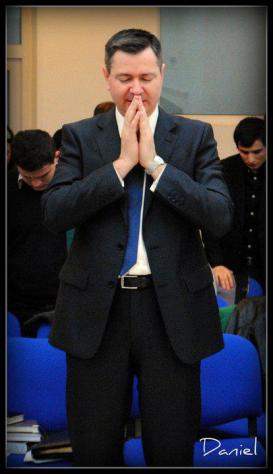 Dumnezeu nu foloseste punctul. E unul dintre secretele Sale. El foloseste doua puncte, virgula sau punctul si virgula, spunea Tozer.
Dumnezeu nu foloseste punctul. E unul dintre secretele Sale. El foloseste doua puncte, virgula sau punctul si virgula, spunea Tozer.


















